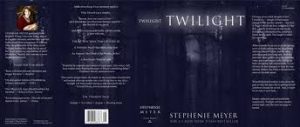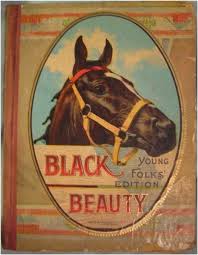
I’m revisiting an interesting article by Maria Nikolajeva, director of the Homerton Research and Teaching Centre for Children’s Literature, entitled ‘Young adult fiction is integral to helping students develop empathy’, ahead of the YA Investigating Identities conference at the University of Northampton next weekend. I agree with the basic premise here, and I want to argue that YA Gothic fictions, with their emphasis on otherness and outsiderness, are crucial to promoting this feeling of empathy. This was something I had in mind myself when I was creating my Generation Dead: YA Fiction and the Gothic course at the University of Hertfordshire in 2013. I disagree with statements Nikolajeva makes elsewhere however, though these are worth raising:
Sadly, young adult fiction is not always taken seriously. One of the reasons for this is that the majority of early YA novels tended to be excruciatingly didactic − pamphlets on unwanted pregnancy and peer pressure, slightly disguised as fiction.
For me this argument belongs to an earlier era, one when women educationalists first began to be prominent in writings for young persons. Many in the eighteenth century were Quakers or Unitarians, Priscilla Wakefield and Anna Laetitia Barbauld etc. and later Anna Sewell, author of Black Beauty. The latter was the first novel to give voice to, and be narrated by an animal persona and it is seminal to any empathy or animal cruelty debate. The work of these teachers of girls was rejected by literary figures of the day such as Charles Lamb who branded them a ‘monstrous regiment of women’. Histories of children’s literature have similarly dismissed these products of a female pen as dreary didactics. We apparently have to wait until the 1860s when Alice was published to find books that are designed for children’s pleasure. At this point children’s or young adult literature is wrestled away from women teachers back into the hands of male academics or intellectuals (Lewis Carroll, J. M. Barrie, and later J.R.R. Tolkein and C.S. Lewis). My point is that it is often not the didactic writing that is the cause of the derision, but the feminisation and popularisation of the genre. Twilight is the stand out example of this process in the present. Whilst there are arguments to be had re: literary merit, the vitriol attached to this much maligned book is extraordinary. This derision impacted on the understanding of YA literature more broadly and shaped the prejudice I experienced re: my course on YA gothic fiction within the academy in its early stages. Even now it occasionally resurfaces at the university and can be felt in the disappointment my colleagues in literature feel when a student decides to write their dissertation on YA fiction. There is a need to talk about this misunderstanding still. I’m looking forward to some interesting debates next week!


I deeply appreciate this. I was reading and just thinking, “A-ha!” finally someone else saying, “Yes, this is old hat. Might we move forward?” And that is often what I come across.
In the last five years I’ve noticed this “critic bandwagon” taking over in a general sense to where old assumptions and presumptions pop up. YA fiction, as well as children’s books, have long been a preference of mine for the sake there is often more story and less concern about who is sleeping with who.
However, when it comes to Twilight, it is an odd component that so much focus is placed on it in negative ways. I tried the series, got bored and moved on. I’m wondering where that habit got lost in this decade. It’s almost as if it is this new method to pick on someone or something side by side with the anti-bullying ideology. The negativity of humanity feels the need to leak in by some other format and becoming a “critic” is the new way to reach that.
Because Twilight is so well-known many come to the conversation in a manner that, to them, welcomes, “Oh, I know that story and I know what to say specifically that is negative about it. That will make me appear cool or intelligent, so I will do that!” Whereas with other volumes they might not be aware or have any understanding of.
Either way, I appreciate what you’ve written here and I do hope I didn’t lose the point in my own happy thoughts about it!
Thanks Daryl,
Yes, it is complex in terms of negative feelings towards YA from within the academy. I appreciate your comments and I’m glad that you are still finding interest in the blog. The more comments the better!
Sam